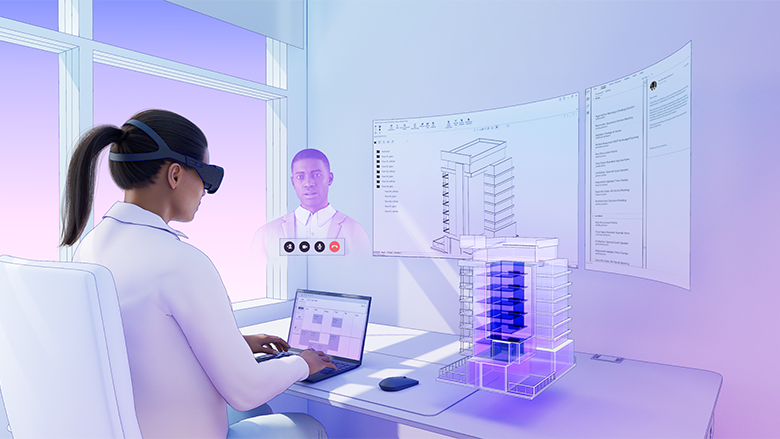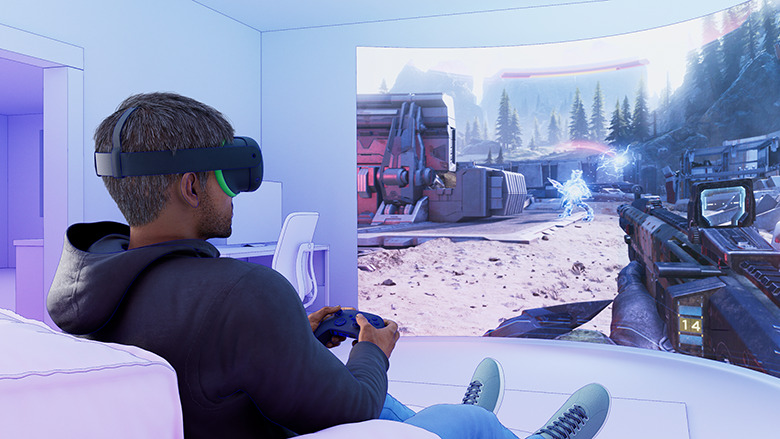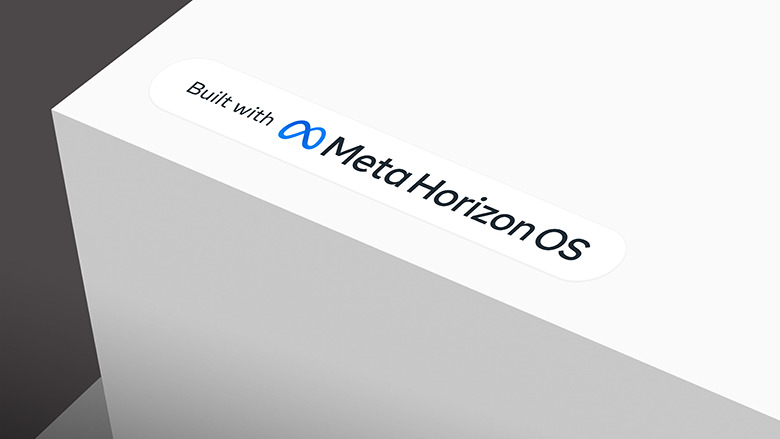Meta Opens Up Its Horizon OS To Third-Party Hardware, Including A Limited-Edition Xbox VR Headset
Since PlayStation announced PS VR years ago, rumors of a virtual or mixed-reality headset coming from Xbox have swirled. With Meta's latest announcement, that dream may finally become a reality through a partnership between the two companies.
That's only one part of what Meta revealed today, though. In a blog post, the company announced that it is officially opening up its Meta Horizon OS operating system to third-party hardware. This means that a hardware company could build a mixed or virtual-reality headset and use Meta's operating system to power it — much like a phone maker would build a phone running Android.
What does this change mean for Meta Quest owners?
The company says that this marks "a new era for mixed reality" and that the move is "giving more choice to consumers and a larger ecosystem for developers to build for."
This new hardware ecosystem will run on Meta Horizon OS, the mixed reality operating system that powers our Meta Quest headsets. We chose this name to reflect our vision of a computing platform built around people and connection—and the shared social fabric that makes this possible. Meta Horizon OS combines the core technologies powering today's mixed reality experiences with a suite of features that put social presence at the center of the platform.
The company says that to mark this change, it is renaming the Meta Quest Store to the Meta Horizon Store as third-party headsets will also have access to this new store — much like Android phones have access to and are commonly defaulted to using Google's Play Store. The company is also renaming the Meta Quest app to the Meta Horizon app and bringing the social layer of Horizon across its own and third-party devices.
The Horizon social layer currently powering Meta Quest devices will extend across this new ecosystem. It enables people's identities, avatars, and friend groups to move with them across virtual spaces and lets developers integrate rich social features into their apps. And because this social layer is made to bridge multiple platforms, people can spend time together in virtual worlds that exist across mixed reality, mobile, and desktop devices. Meta Horizon OS devices will also use the same mobile companion app that Meta Quest owners use today—we'll rename this as the Meta Horizon app.
What kind of third-party hardware can we expect?
While Meta and its partners haven't shown off any third-party hardware just yet, the company has hinted at what kinds of brands and devices we can expect as they work together to enable this new third-party network.
The biggest one is Xbox. Meta says that in addition to continuing its partnership to offer Xbox Cloud Gaming directly on the Quest headset, the two are now working together to create what it is calling a "limited-edition Meta Quest, inspired by Xbox."
It's currently unclear if that will simply mean that it is Black and Green instead of White and Black or if the Xbox brand will run deeper into the software—we'll have to wait to see when it gets unveiled. I am personally most interested in this one. Could Meta Horizon OS integrate with Xbox's social features to make playing with your friends on Xbox Cloud Gaming easier on Quest? This could get interesting.
In addition to Xbox, Meta says that it is also working with ASUS's Republic of Gamers to develop an "all-new performance gaming headset" and Lenovo to create "mixed reality devices for productivity, learning, and entertainment."
S.Y. Hsu, co-CEO of ASUS, said in a statement, "We've been inspired by the incredible gaming community that has formed around virtual and mixed reality, and we know that the most passionate gamers want high-performance hardware. With Meta Horizon OS, ASUS and Republic of Gamers will build the gaming headset of the next generation."

Yuanqing Yang, Chair & CEO of Lenovo, said, "Mixed reality is transforming how people interface with computers by integrating digital experiences and physical spaces to reach new levels of productivity, learning and play. Building from our past successful partnership, Lenovo is bringing together Meta Horizon OS with our leadership and innovation in personal computing to accelerate adoption of new user scenarios in mixed reality like virtual screens, remote presence, content consumption, and immersive training."
A new era for mixed reality, or Meta?
Aside from the new third-party hardware coming down the line, Meta is also focusing on building out the app ecosystem on the Meta Horizon OS platform. The company is bringing App Lab titles to a dedicated section of the Meta Horizon Store, developing a new spatial app framework, and even poked Google to bring the Google Play 2D app store to Meta Horizon OS.
We'll have to see how all of this takes shape over time, but it's entirely clear that Meta is making a move to become the Android of virtual and mixed reality with Meta Horizon OS.

